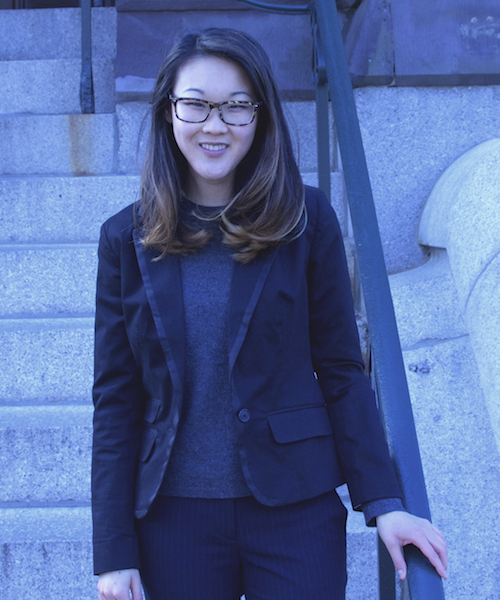
Pessimism Doesn’t Help Address Divergent Interests between China and United States
Xiaogu Xu | 2019年7月12日
注:中英文网站上发表的学生日志均为英文。
Although U.S.-China relations have nosedived since President Trump’s election in 2016, I am optimistic about the future of U.S.-China relations over the coming decade. Contrary to what we hear in the media, there is no appetite for war, which in turn will force cooperation to some extent to avoid escalation. The destructiveness of modern war is a safeguard against the Thucydides trap argument advanced by Graham Allison, a professor of government at Harvard University. The Thucydides trap occurs when a rising power, such as China, threatens to eclipse a rival, in this case the United States, and conflict may result. In a recent South China Morning Post article, Allison said the two global superpowers were “in a dangerous period”.
This dangerous period is evidenced in everyday media headlines which put the trade war front and center as it has escalated tensions between the United States. and China. In recent months, U.S.-China relations have been full of uncertainty as progress on bilateral trade negotiations has stalled. From the point of view of the United States, China’s global role has shifted from collaborator in the global order to competitor at an alarming rate. Meanwhile, the Chinese point of view has operated under the assumption that the trade war is ultimately hurting American businesses and sees that it is in the best interest of both economies to resolve this issue as quickly as possible. In April, China’s senior diplomat Wang Yi described the latest round of trade talks with “cautious optimism” as concrete progress was achieved on important structural issues including intellectual property protection, technology transfer, agriculture, services and currency.
In contrast to the Chinese “cautious optimism”, American sentiment overall from business leaders to politicians has become more pessimistic. In late 2018, Henry Paulson, former U.S. Treasury Secretary, outlined the necessary changes to transform pessimistic views into optimistic views. He has distinguished himself for his engagement with China over the years. From opening the Goldman Sachs offices in Beijing and Shanghai in 1994, to launching the “strategic economic dialogue” between top American and Chinese officials in 2006 as Treasury Secretary, his work has led him to find ways to better manage the bilateral relationship between the two global superpowers. In a WSJ article, he raises two interesting points. First, China has failed to deliver its promise of opening its economy to foreign competition since joining the World Trade Organization. As a result, 17 years later the Communist Party’s centralization of power and continued discrimination against foreign companies has unified American leaders on both sides of the political aisle in the belief that China is a strategic competitor. Second, by virtue of China’s geography, economic gravity and strategic reality, no country in the region will cut itself off from such a large and rapidly growing economy.
In the short-term pessimism may dominate. Matt Peterson writes about how U.S.-China trade talks have already changed the world. While trade talks may end, the trade war will never die. The fact that China is not a democracy is certainly one of the reasons for the tension. However, international politics alone do not determine the direction in which U.S.-China relations go. In Kai-Fu Lee’s book, AI Superpowers: China, Silicon Valley and the New World Order, the venture capitalist and former president of Google China talks about the collaborative nature of artificial intelligence (“AI”). The United States leads in technology while China leads in sheer quantity of data. AI is going to be so powerful across industries, Lee compares AI to the invention of electricity. The winners of tomorrow will be those who can harness AI and apply it to solve the world’s most complex problems. Rather than compete in the next technological frontier, the United States and China can reap the benefits of collaborating to further scientific advancement rather than their own geopolitical interests.
Ultimately, investment ties, people ties and complementary scientific knowledge will pull the two societies together. That does not mean we are not going to have difficulties in the short-term. However, I am particularly optimistic that today’s political leaders will not be the only ones with a say in the direction of U.S.-China relations. I am thrilled to see the number of peer-to-peer interactions between American and Chinese students. There are more than 350,000 Chinese students studying in the United States and just over 20,000 Americans in China. The impact of this cultural exchange cannot be underestimated as these are the leaders of tomorrow, and in my optimistic opinion, these young leaders will shape the next decade of U.S.-China relations with dynamic and ambitious goals to increase scientific collaboration in AI and increase investments in technology that solve issues that no longer have borders such as climate change.

Xiaogu Xu | 2019年7月12日

Yihong Shi | 2019年7月12日

Zhaoqing Li | 2019年7月12日

Danny Li | 2019年7月11日

Ivan Solomon | 2019年7月11日

Jozanne Murphy | 2019年7月11日

Lakshmi Iyengar | 2019年7月11日

Aaron Baum | 2019年7月10日

Andrea Su | 2019年7月10日

Chang Fan | 2019年7月10日

Junming Cui | 2019年7月10日